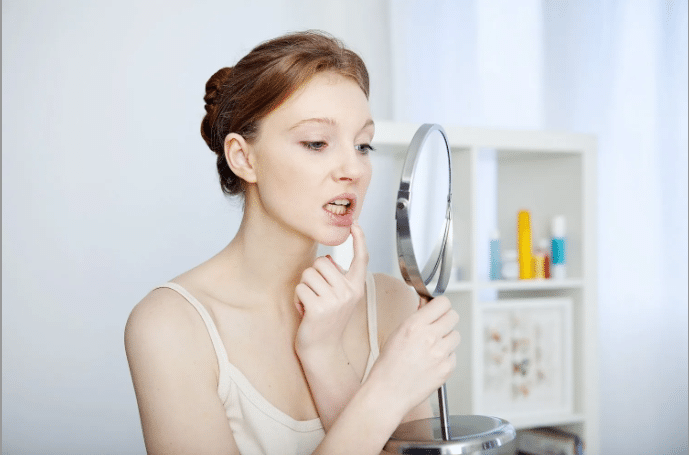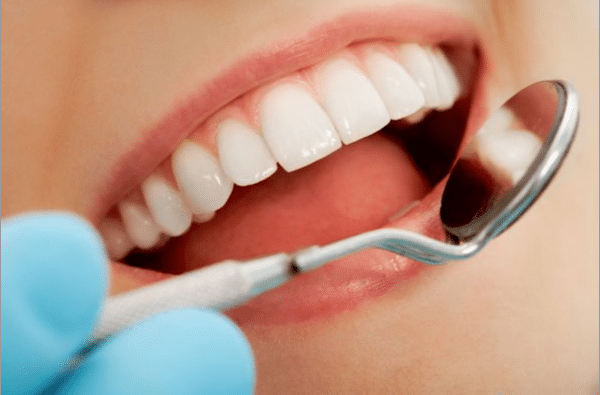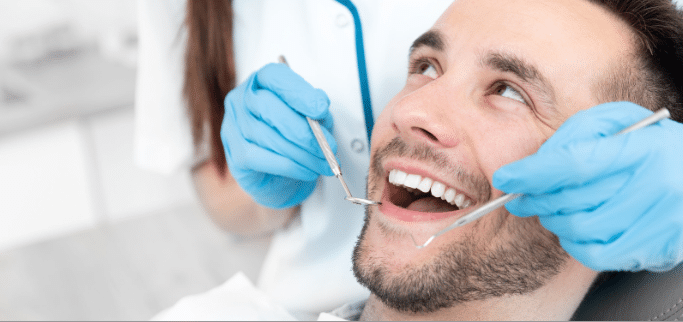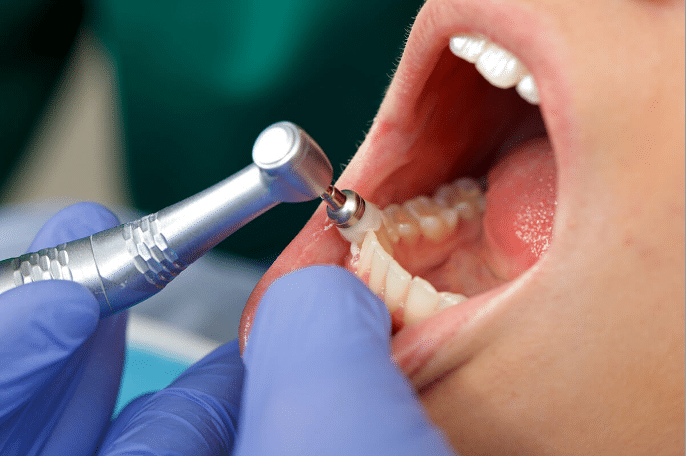“Why is my permanent tooth loose?” This is a question asked by many of us who have gone through many tooth tribulations and trials. We’re all familiar with the idea that baby teeth naturally fall out to make way for permanent ones, right? Well, it turns out, the transition isn’t always as straightforward as we might think.
Sometimes, adults also ask this question: “Why is my permanent tooth loose?” because they experience the unsettling situation of having their permanent teeth loose, which can be quite worrisome. But here’s the reassuring part – having a loose permanent tooth doesn’t necessarily mean you’re going to lose it for good.
In this article, you will get the answer and professional dentist-recommended solutions to the question: “Why is my permanent tooth loose?” so keep reading to get your answer on this.
The Idea of a Loose Tooth?

It’s not just kids who can have loose teeth. Even adults can end up with a loose tooth. It may be due to gum disease or stress. Most kids are excited about their baby teeth loosening up and falling out. They eagerly wait for the tooth fairy to arrive.
As an adult, you realize that tooth fairy is not real, but some people continue to experience their teeth getting loose. Before you dismiss it as a part of growing old, let us tell you that it may not have much to do with old age.
Turns out, loose permanent teeth can happen even to young adults. But “why is my permanent tooth loose?’ Read on to find out the reasons and how to fix them.
What Causes a Loose Tooth? – Why is My Permanent Tooth Loose?

Why is my permanent teeth loose? Below are the answers to these questions:
1. Trauma
If you have a big fall or an injury while playing or any other accidents, dental trauma can happen, leading to loose teeth. Some traumatic injuries may heal on their own, but it’s important to see a dentist right away to make sure the root of the tooth and surrounding gums haven’t been damaged[mfn]https://alsalehdental.com/i-have-a-loose-permanent-tooth-will-it-get-better/[/mfn].
2. Gum disease
You might know it as gum disease, but periodontitis is a bacterial infection that affects the gums, soft tissue, and the bones surrounding your teeth. The expert explains that as the disease progresses, it can cause the gums to recede and your permanent teeth to become loose.
Other symptoms of advanced gum disease include red, tender, swollen, and bleeding gums, increased food lodgement, and bad breath. All these can have detrimental effects on your overall oral health and lead to loose teeth in the long run.
3. Stress
Some people frequently clench or grind their teeth when they are stressed. That’s a condition known as bruxism, and it can cause your teeth to become loose over time. It generates more than normal biting force that can affect the supporting tissues of the teeth. Many people grind their teeth at night without realizing it.
4. Pregnancy and Menopause
Changes in your hormones (estrogen and progesterone) during pregnancy or menopause can also affect your dental health adversely, says Dr Aazaz, Head Of Department, Dental, Paras Health, Gurugram, to know why some adults have loose teeth.
Higher levels of estrogen and progesterone during pregnancy can cause ligaments and bones in the jaw to loosen, but these changes are only temporary. During menopause, the opposite happens—the body starts to produce less estrogen, which can lead to bone density loss. As the jawbone becomes weaker, it increases the risk of loose teeth.
5. Medications
You’ve probably heard that calcium builds strong bones, but it’s also important for strong and healthy teeth. Certain medications like anti-seizure ones such as phenytoin (Dilantin®) may make it more difficult for the body to absorb calcium. When such medications are taken regularly over a long period of time, it can cause the tooth to weaken and become loose.
Many common medications, like contraceptives, antidepressants, and pain relievers have dry mouth as a potential side effect, which can increase the risk of tooth decay. Even if you suspect your medication may be the cause of your loose adult tooth, don’t stop taking any medications without talking with your doctor first.
6. Underlying Health Conditions
Certain diseases such as uncontrolled diabetes and osteoporosis can aggravate gum diseases which can lead to loose teeth[mfn]https://muscaroandmartinidentistry.com/loose-adult-tooth-possible-causes-and-how-to-fix-it/[/mfn]. You’ve probably heard that calcium builds strong bones, but it’s also important for strong and healthy teeth.
Certain underlying health conditions can also increase your risk of developing gum disease, a common cause of loose teeth. These include:
- HIV
- Cancer
- Arthritis
- Diabetes
- Osteoporosis
There are a number of reasons a permanent tooth may become loose. The main causes are gum disease, stress due to clenching or grinding, and trauma, including accidents or sports injuries.
Gum (or periodontal) disease is generally considered to be the most common cause of loose permanent teeth. In the case of gum disease, the build-up of bacteria causes gums to recede to the point where they are not able to hold the tooth in place.
In some cases, the bacteria associated with gum disease can also cause damage to roots and bone. When gum disease is the cause, it’s important to treat the underlying problem as well as stabilize the tooth. This often means that deep cleaning and treatments to remove plaque below the gumline are required before the tooth can be stabilized.
Loose teeth can also be caused by clenching, grinding or outside injury, which weaken the ligaments attaching the teeth to the bone. These ligaments can often be strengthened with help, and the tooth stabilized, especially if the gums are healthy.
If your tooth becomes loose because of an accident, there’s a good chance your dentist can save the tooth, even if it’s very loose, so it’s even more important to get into the office as soon as possible.
In many cases, a loose adult tooth or teeth can be stabilized by attaching them to neighboring teeth through a procedure called splinting[mfn]https://www.healthshots.com/preventive-care/self-care/why-is-my-permanent-tooth-loose/[/mfn]. This is usually a temporary procedure lasting a few weeks or months that allows gums to heal and helps the ligaments to strengthen around the tooth. A splint is often made of composite resin and wire and attaches the loose tooth or teeth to a healthy tooth next to it. Your dentist may also put a small, specially-made plastic splint in place to stabilize the loose tooth.
Heavy grinding of the teeth or clenching of the jaw (also called bruxism), is another major cause of loose teeth. Grinding or clenching puts an unexpected amount of pressure on the teeth and can often cause a tooth to become loose, especially when there’s an underlying problem like infection or decay.
Bruxism often happens while a patient is sleeping, and, if night grinding is a factor, your dentist will generally recommend a night guard after treating and stabilizing your tooth. A removable guard can reduce stress on teeth caused by night grinding, helping ligaments heal and helping protect any dental work done to stabilize the tooth.
Watch the video below to learn more on this topic; “Why is my permanent tooth loose?”:
How to Treat Loose Teeth: Tips to Fix Loose Teeth

There is not just one treatment to fix a loose tooth. It depends on the severity of the issue and how early it’s diagnosed. Let us look at some of the ways a dentist can help to save a loose adult tooth.
Non-Surgical Treatments
1. Splinting
If the tooth is loose due to injury, your dentist may try to splint the tooth. Splinting involves bonding the loose tooth to the surrounding teeth to help secure it, explains the expert.
2. Deep Cleaning
If poor dental hygiene or gum disease is the cause of a loose tooth, your dentist may suggest you go for deep cleaning. During deep cleaning, a dental hygienist will remove the infection that has grown into the gumline. Once the infection gets cleared, the gums may heal and tighten up around the tooth.
Surgical Treatments
1. Tissue and Bone Grafting
It involves synthetic or natural bone placement around the weakened root to help regenerate new bone and gum tissue.
2. Flap Surgery
In this case, the gum is lifted to remove tartar and repositioned back in place. This process is done to gain a more clear access to the deep-seated calculus.
3. Guided-Tissue Regeneration
It uses barrier membranes, which encourage tissue regeneration which was destroyed by periodontitis. Your dental troubles can be prevented if you practice good oral hygiene, go in for a professional cleaning every 8 to 12 months, and stay away from tobacco products.
When is a Loose Tooth An Emergency?

Ideally, you should schedule an examination with your dentist as soon as you notice that an adult tooth has become loose. If left alone, the condition can gradually worsen and cause damage to the root and gums, which can lead to infection. Contact your dentist immediately if you notice any of the following symptoms develop:
- An extreme toothache
- Sores on your tongue or lips
- Changes in shape, color, or swelling of the gums
- Bleeding gums when biting or pressing your gums
- The appearance of pus in your mouth
- Darkened tooth enamel
- Unnatural tooth mobility or numb tooth
- Consistent headaches
How to Prevent Loose Adult Teeth
The idea of a wiggly adult tooth may be worrisome, but there are some easy ways to lower your risk of developing loose teeth:
- Practice good oral hygiene: It may seem like a no-brainer, but the importance of good daily oral hygiene cannot be stressed enough. Brushing for two minutes at least twice a day and flossing daily can go a long way to protecting your dental health.
- Go in for a professional cleaning every 6 months: While brushing at home is essential, it’s no replacement for a professional cleaning. In addition to being more thorough, a professional cleaning also gives your dentist a chance to catch oral health problems early.
- Avoid tobacco products: Smoking or chewing tobacco regularly is one of the leading causes of gum disease in the US. Cutting out tobacco can significantly reduce your risk of both gum disease and oral cancer.
- Take steps to reduce damage from teeth grinding (bruxism): If you frequently grind or clench your teeth, a bite splint (also called a dental guard or a night guard) can help protect your teeth from damage.
- Wear a mouthguard when you play contact sports to protect your teeth.
- Stay hydrated to prevent dry mouth.
What If the Tooth Can’t Be Saved?
“Why is my permanent tooth loss?” ‘Can I save it?’
In some cases (particularly where gum disease is involved) your dentist may not be able to save your loose tooth. He may need to extract the tooth and replace it with an implant or bridge. But with new technology and expertise, your dentist is more likely than ever to be able to save your loose permanent tooth.
Hoping that your tooth will heal on its own is probably not an effective strategy for dealing with a loose permanent tooth. Playing it safe and making an appointment with your dentist as soon as you feel that something is wrong is a much better bet.
Until you’re able to see your dentist, eat soft foods, and use a soft-bristled toothbrush. Rinsing with salt water can also help keep the area clean. Once you’re in the chair, your dentist will be able to determine the cause of your loose tooth and the best approach to treatment. And in most cases, the earlier you see your dentist, the better chance he has of saving your tooth.
In many cases, your dentist can step in and help save the tooth. However, it’s important to remember that this issue typically won’t resolve itself. So, if you find yourself with a loose permanent tooth, it’s a good idea to schedule an appointment with your dentist as soon as possible. They can provide the guidance and care needed to address the problem and preserve your precious smile.
[bwla_faq faq_topics=”frequently-asked-questions-on-loose-permanent-tooth” sbox=”1″ paginate=”1″ pag_limit=”5″ list=”1″ /]
